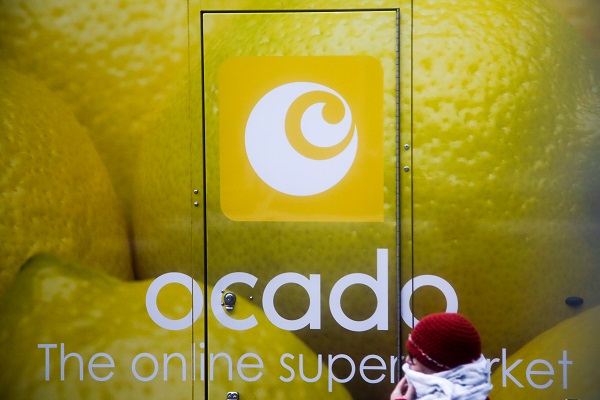ii view: Ocado's post-crash share gains now completely wiped out
8th February 2022 11:40
by Keith Bowman from interactive investor
A 2020 Covid winner, shares for this FTSE 100 company have disappointed. We assess prospects.

Full-year results to 28 November
- Revenue up 7% to £2.5 billion
- Adjusted profit down 17% to £61 million
- Loss before tax of £177 million, from a loss of £52 million in 2020
- Net debt of £360 million, from cash of £671 million in 2020
- No dividend payment
Chief executive Tim Steiner said:
"The past year has further reinforced that demand for online grocery is here to stay. In the majority of mature markets, the fastest growing channel is online and to truly win here food retailers need to deliver the best offer with the best economics across all customer missions. The innovation that is powering the development of the unique and proprietary Ocado Smart Platform is focused on providing an unequalled customer experience through ground-breaking technology which leads to an unrivalled low cost operation."
ii round-up:
Food delivery and technology company Ocado (LSE:OCDO) today reported full-year 2021 results broadly in line with analyst hopes, although management offered disappointing guidance for the year ahead.
Overall group revenue rose 7% to £2.5 billion, but adjusted profit fell 17% from 2020 to £61 million, hindered by technology investment spending, which will remain ongoing over the full year 2022.
Ocado shares fell by more than 10% in UK trading, leaving them down more than 50% over the last year. They're also back where they were just before the Covid crash in March 2020. Shares for more traditional supermarket operator Sainsbury's (LSE:SBRY) are up by around a fifth in the past year. The FTSE All Share index is up by just over 14%.
- Ian Cowie: how I have taken advantage of the tech sell-off
- Our outlook for 2022: key topics and investment ideas for the year ahead
Ocado operates via two divisions - Retail and Solutions. Retail is the company’s own online supermarket business, now run as a 50:50 joint venture with Marks & Spencer (LSE:MKS). Solutions is responsible for helping other retailers with their online offerings, both in the UK and overseas, using its Ocado Smart Platform (OSP) software and robot technology.
Sales for Retail rose 4.6% to £2.3 billion compared to 2020 and are up by 41.5% compared to the pre-pandemic 2019. Sales for its Solutions business climbed to £66.6 million from £16.6 million in 2020 with the number of operating facilities doubling.
But the adjusted loss for the International Solutions business rose to £119 million from 2020’s loss of £83.3 million as spending increased. Overseas customers include Kroger in the USA. That countered gains at both its UK Solutions and Retail businesses.
- No trading fees on US shares until 11 February. Click here for details
- Want to buy and sell international shares? It’s easy to do. Here’s how
Increased operational and tech spending for its International Solutions business is now expected to leave the full-year 2022 adjusted loss flat compared to 2021. That, according to broker UBS, will take the overall adjusted profit outcome for Ocado during 2022 down to £55 million from a current analyst consensus forecast of £92 million.
ii view:
Analysts broadly break the Ocado business and its prospects into three arenas. First, its UK Retail business; second the valuation of contracts around its Solutions business; and thirdly expectations on newly won Solutions contracts.
For investors, ongoing investment spend, and operational costs required for its potentially sizeable Solutions business continue to offer a headwind. Other retailers such as Tesco (LSE:TSCO) in the UK and others overseas are also sharpening their own delivery operations. A previous fire and the subsequent operational disruption also offered challenges. It also currently pays no dividend in contrast to more traditional supermarket operators.
But Ocado once estimated the addressable market for its Solutions business to be around $700 billion. Around 80% of Ocado’s stock market value is considered by analysts to be attempting to value its Solutions business, the other 20% the UK Retail business. For now, and while required development costs are hindering, long-term potential remains, with higher-risk investors likely to stay patient.
Positives:
- Efficient technology-based packing of customer orders
- UK capacity continuing to grow
Negatives:
- Business costs generally are rising
- Doesn’t pay a dividend
The average rating of stock market analysts:
Strong hold
These articles are provided for information purposes only. Occasionally, an opinion about whether to buy or sell a specific investment may be provided by third parties. The content is not intended to be a personal recommendation to buy or sell any financial instrument or product, or to adopt any investment strategy as it is not provided based on an assessment of your investing knowledge and experience, your financial situation or your investment objectives. The value of your investments, and the income derived from them, may go down as well as up. You may not get back all the money that you invest. The investments referred to in this article may not be suitable for all investors, and if in doubt, an investor should seek advice from a qualified investment adviser.
Full performance can be found on the company or index summary page on the interactive investor website. Simply click on the company's or index name highlighted in the article.